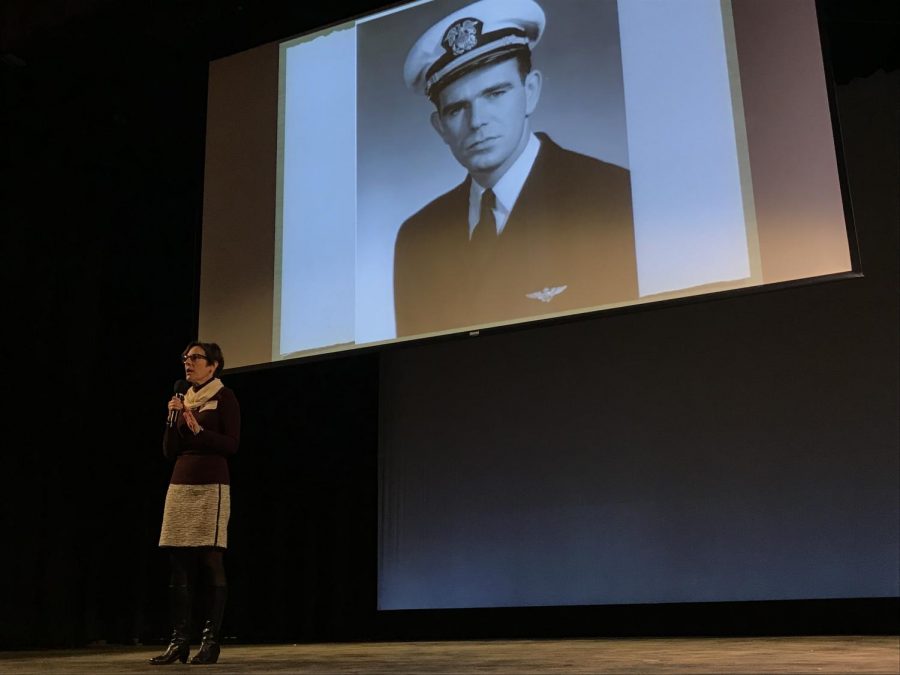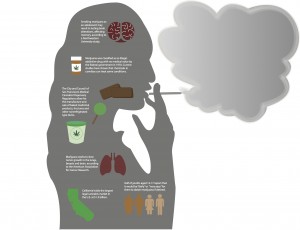Speaker discusses substance abuse with student body
Speaker and former substance user Brenda Conlan shows the audience a photo of her father as she discusses her experiences with substance abuse in her family. Conlan spoke with students and faculty in all four divisions throughout the day about her work as a drug and alcohol educator.
February 25, 2019
WEB EXCLUSIVE Students gathered in Syufy Theatre today for a presentation about substance abuse and addiction, particularly in adolescents.
“I started getting involved as an alcohol and drug educator when I was in my late 20s,” speaker and former substance user Brenda Conlan said. “I needed to have some distance and some maturity before I came back to this issue to be able to do it in a way that wasn’t overly connected to my own family or emotions.”
School Counselor Annie Egan contacted Conlan to organize the assembly and discuss her approach to the topic of substance abuse amongst teenagers.
“I wanted to make sure that the assembly wasn’t the regular ‘Drug 101,’” Egan said. “I wanted to make sure it was strength-based and focused on helping people find other things to do to bring joy so that it doesn’t feel like a compromise or punishment to be doing drugs.”
Conlan connected with the students utilizing personal stories of her own experiences with substances as well as her family’s struggle with alcohol and drugs, according to senior Kiki Apple.
“I thought it was very interesting how [Conlan] approached the topic of alcohol,” Apple said. “She definitely understood peer pressure a lot better than other presenters and I liked how she was very real about her own history with [substances].”
As a drug and alcohol educator, Conlan visits close to 30 schools a year to lead discussions focusing particularly on alcohol, nicotine and marijuana, and the emotional, social, and physical effects of addiction.
“Addiction is a huge topic so I conduct week-long seminars with students and work with parents at a lot of schools,” Conlan said. “I try to really involve the community because this is a community issue.”
Drinking regularly during adolescence can make it difficult for teenagers’ brains to develop without also cultivating a reliance on alcohol, according to Egan.
“It’s not that alcohol is necessarily bad,” Egan said. “But if you’re [constantly] using it as a teenager when you’re brain is learning to manage social discomfort, stress, and academics, it’s going to be really hard in 10 years to navigate all that without alcohol.”
Participating in volunteer work and interacting with individuals who have experienced addiction can be useful for those more interested in learning about substance abuse, according to Conlan.
“I would recommend to those interested in my type of profession and seminars to first go have some life,” Conlan said. “Continue going to school and maybe start contributing to a volunteer situation where you can see what’s really happening with people who have addictions. The most important thing though is to just have a life.”












